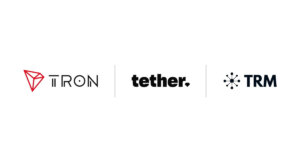 GameFi’s next boom: How TON-based games and crypto airdrops are attracting millions of users
GameFi’s next boom: How TON-based games and crypto airdrops are attracting millions of users GameFi’s next boom: How TON-based games and crypto airdrops are attracting millions of users
Blockchain gaming records 4.2 million users daily, driven by advances in TON ecosystem, airdrops, and technological progress.

Cover art/illustration via CryptoSlate. Image includes combined content which may include AI-generated content.
The following is a guest post from Yaniv Baruch, COO at Playnance.
Blockchain gaming recently hit a record high of 4.2 million daily active users, according to a DappRadar report. The GameFi industry is seeing an unprecedented surge in new users. However, this growth is somewhat overshadowed by buzzier trends like AI and memecoins. Three key factors drive the influx of users: advancements in crypto products (including TON ecosystem developments), airdrops, and broader technological progress in the crypto space.
These factors helped attract – and, most importantly, retain – this massive user base, setting the stage for a new GameFi boom by 2025.
Transforming Tomorrow With TON
Telegram’s TON (The Open Network) is fast, scalable, and charges minimal fees, making it an ideal blockchain for gaming. After all, gaming networks need to process player interactions in real time to ensure a smooth experience. Any delays can frustrate players and lead to them abandoning the game.
TON’s capabilities allow for more advanced gaming experiences, like Catizen and TapSwap, and its integration into the Telegram app makes it one of the most accessible gaming networks out there. This isn’t just speculation – it’s a fact, proven by over 239 million players in Hamster Kombat, 21 million in Catizen, and over 60 million users of Tapswap. The figure is impressive for standard blockchain-based games and even Web2 video games.
The crucial role of TON for the coming GameFi boom next year is that the majority of this audience, according to the developers themselves, is completely new to the cryptocurrency industry. After gaining their first Web3 gaming experience or airdrops in these and other Dapps, some of them will eventually turn to other GameFi products and other blockchain ecosystems.
Crypto Airdrops: A Double-Edged Necessity
In addition to TON’s growing GameFi audience, airdrops play a key role. They distribute in-game tokens to newer players, allowing them to explore a game’s capabilities without investing.
For example, Hamster Kombat, the TON network’s most successful tap-to-play game, held an airdrop alongside its HMSTR token launch on September 26th for its 131 million eligible users. Players have been enjoying the game’s first season of content for the past few months, and rewards were paid out based on player activity and other criteria.
This method incentivizes players to log in and level up every day, complete quests, finish limited-time activities, and boost the game’s daily active player base. The promise of a payout based on performance also encourages players to share the game with their friends, further increasing the player count.
While crypto airdrops have their downsides – such as “airdrop farmers” who hop from game to game to collect tokens and sell them off without investing in the game – these challenges are outweighed by the benefits. Despite the fact that 88% of tokens launched alongside airdrops this year have declined in price, the overall advantages of airdrops remain significant.
They kickstart a game’s community and draw in a dedicated group of gamers encouraged by the initial free funds. That group will then spread the word and attract more players, strengthening its fanbase while bringing in a GameFi product performance.
This increases awareness of the project’s token, potentially increasing its value and rewarding early adopters. When done properly, with fair and thoughtful token distribution to loyal users, the user airdrop mechanism creates a cycle of awareness, participation, and rewards. This mechanic has helped many projects rise during the bear market, and it will create even more traction for the upcoming GameFi boom soon.
Maintaining Steady Momentum
As is the case with several Web3 sectors, GameFi is currently experiencing an uptick in users. However, keeping players involved in a game is equally, if not more, important. To create another GameFi boom next year, developers need to harness the best practices of new technologies, projects and ecosystems like TON to create new, meaningful, and seamless gaming experiences for their players (in this case, recent developments in L3, zero-gas and Account Abstraction-based solutions have made great strides).
Approaching Web3 game development with these goals in mind will encourage developers to attract players and earn from their gaming efforts, but a good gaming experience ties the player to it on an emotional level. That strong tie then prompts them to stick with a game beyond its financial benefits. A meaningful experience will also invite them to tell their friends and get other players involved, ultimately benefiting the GameFi ecosystem as a whole.
That said, we’re still waiting on the emergence of a dominating force – akin to Clash of Clans or Candy Crush in Web2 several years before – that will finally redefine the current GameFi market state. We’re all waiting for an experience that will capture the minds (and hands!) of the millions playing modern blockchain-based games.
Striking the right balance between play-to-earn models and fun gameplay ensures that players stay engaged even as financial rewards fluctuate. Together, these gaming experiences will keep users in the industry for the long haul. With the recent $1.4BN of investments in the GameFi industry in H1 2024, the records of daily active users this year, and the wave of absolutely new users attracted by GameFi projects on TON, we will definitely see a new GameFi industry boom in 2025.
By that time, we’re bound to see new technologies and game mechanics come to light. Developers must then apply the previous concepts to these new ideas to create even better experiences for their players. These factors could fuel a new GameFi boom in 2025 as technologies and game mechanics mature.



 CryptoQuant
CryptoQuant 

























































































 TON
TON

